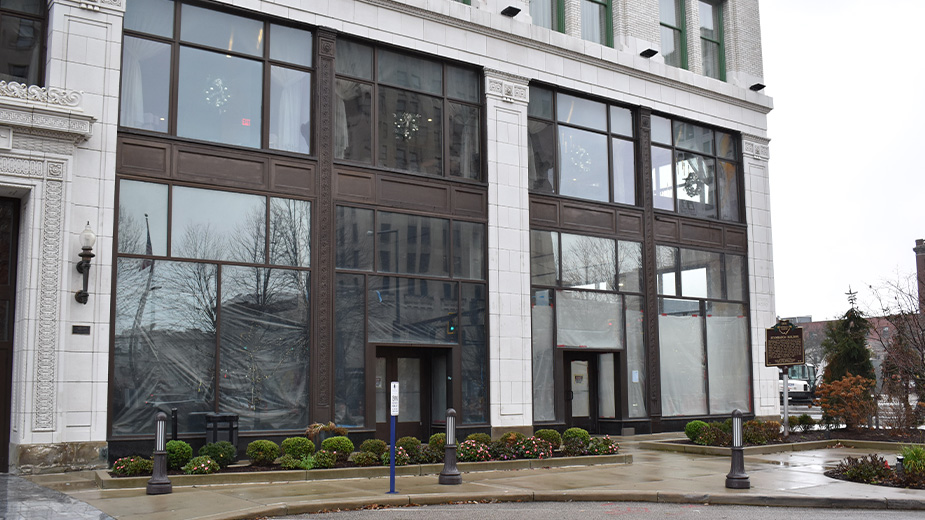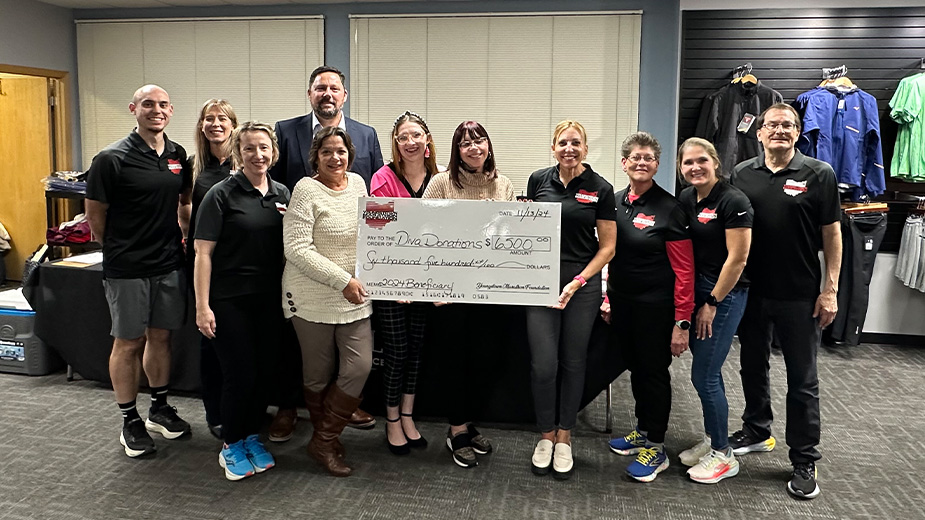Kesslers to Grow Marijuana for Unknown Medical Market
YOUNGSTOWN, Ohio – Brian Kessler was waking up in Los Angeles when his phone blew up; Daniel Kessler was at work at the family’s Boardman Molded Products when he was texted the news. The Ohio Department of Commerce yesterday awarded Riviera Creek Holding LLC one of the 12 provisional Level I licenses to grow medical marijuana inside a building that Brian, Daniel’s uncle, owns at 1275 Crescent St.
“It’s exciting,” they echoed each other in separate phone calls.
And daunting. In nine months, under the terms of the license, marijuana must be growing inside the building at Crescent Street, which means all regulatory hurdles – the multiple inspections and audits – must be met, and the new business fully functioning to serve a market that does not yet exist in Ohio.
The Kesslers each own a 42.25% stake in Riviera Creek; Brian is CEO, Daniel chief operating officer. They lead a core management team that includes six minority stakeholders.
“We’re going to figure out over the next couple of weeks the type of upfront spend we need versus on an ongoing basis to fully realize our business model,” said Daniel Kessler. “The state is predicting between 5,000 and 50,000 [medical marijuana] patients in year one – that’s the projected market. Because it’s going to be slow growth, we need to manage the business accordingly.”
First order of business is retrofitting the vacant building at 1275 Crescent St. – it previously housed Brian Kessler’s Maui Toys Inc. – for the 25,000 square feet of growing space authorized by the Level I license.
That will cost “a couple of million dollars,” Daniel Kessler says. “We’re taking bids and will review and assess the retrofit.”
Top priority – and mandated by the state – is a secure environment.
The growing operation will be a “high value target and we’re going to treat it as such,” Kessler says. “We’re working with a top-tier security company that has experience in the jewelry business, and that applies to access to the facility where goods are stored.”
Next is acquiring the growing equipment. Riviera Creek will use “a proprietary source,” Kessler says. “Much of this is on the open market. There are companies that specialize in drying room facilities and HVAC environments that are pre-fabbed to insert into these types of facilities. We are taking bids on them.”
The Kesslers have identified a proprietary source of seeds but the first ones cannot be planted until the provisional license granted yesterday is confirmed as final. “At that point we can begin the actual cultivation,” he says. “Then we would have 12- to 18 weeks, depending on how things go, to have product ready to sell.”
Riviera Creek plans to apply for a license to process marijuana into products that would be prescribed by physicians – tinctures, edibles and oils, for example. The company does not plan to seek a dispensary license, Kessler says.
Applications for processing licenses are due in two weeks – and it’s likely that the regulatory review will take a few months. The Ohio Department of Commerce says three licenses will be awarded for dispensaries to operate in the Mahoning, Trumbull and Columbiana region.
With the size of Ohio’s medical marijuana market essentially a guess, and resistance to prescribing products likely to come from who knows how many physicians, Kessler says advocacy groups such as the National Cannabis Industry Association can be expected to underwrite public education campaigns.
How big the market grows determines how big Riviera Creek – and the 11 other Level I licensees – can grow.
Should the state determine medical marijuana products made in Ohio are insufficient to meet demand, the license holders must be ready to add another 25,000 square feet of growing space, and possibly a third increment of another 25,000 square feet.
“There can be up to three phases [of development],” Kessler says. “There could be a lot of money going into expanding the growing space as we go forward.”
So how much investment will this startup with an unknown market need?
City leaders estimate as much as $15 million.
The Kesslers won’t be pinned down but agree $15 million is the upper range depending on how much the growing site expands over three years. Total jobs could exceed 300.
“Each step is a number that’s in the several millions of dollars,” Daniel Kessler says.
“The market has to develop. The doctors have to write the prescriptions.”
The global medical marijuana market is projected to reach $55.6 billion by 2025, according to a report published in January by Grand View Research Inc.
In 2015, the most prescriptions – about 40% — were issued to treat chronic pain, the report found. Marijuana is also prescribed to treat arthritis, migraine headaches and cancer.
The Ohio Department of Commerce received 109 applications for Level 1 licenses and 76 for Level II licenses for smaller grow sites. Riviera Creek is the only company to secure a license in the Mahoning Valley and was ranked fourth from the top in the agency’s scoring system.
To secure the license, Riviera Creek had to pay a $20,000 application fee, a certificate of operation fee of $180,000, a $200,000 annual renewal fee, and provide $750,000 in an escrow account or surety bond. The company also had to establish $500,000 in liquid assets.
Riviera is backed by substantial capital to fund the startup, Brian Kessler says.
“We’re excited as a company. We’re really excited to see a new industry in the Mahoning Valley. But we’re also excited for the ultimate patient who will be the beneficiary of us providing a clean and safe product grown in a secure environment,” Daniel Kessler says.
At full capacity, Riviera Creek would employ more than 300 and those jobs are not limited to labor and security.
“We’re going to be doing research and development as well,” Kessler says.
“There is some negative connotation about marijuana that I hope the public starts to see is somewhat undeserved. We’re going to help clean up an industry that should be regulated and taxed.”
Copyright 2024 The Business Journal, Youngstown, Ohio.



